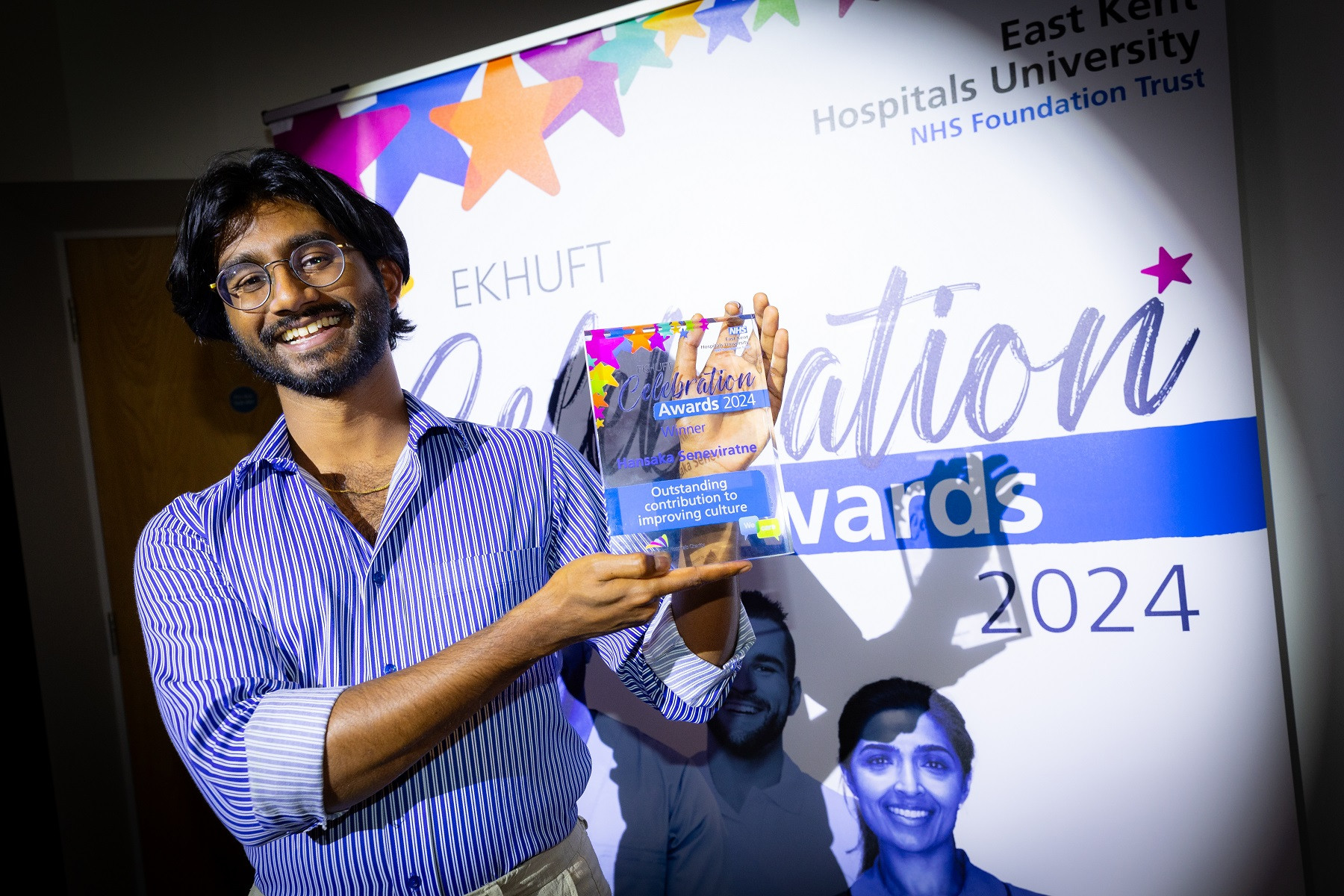
Physiotherapist and anti-racism lecturer is committed to improving culture
A physiotherapist who is dedicated to helping his community is working to make improvements for patients and staff at East Kent Hospitals.
Hansaka Seneviratne swapped petri dishes for people after deciding to abandon a biomedical science degree and follow in his father’s footsteps and study physiotherapy.
In his final year, he was part of the Bridging the Gap to Leadership project, a partnership between the University of Brighton, where Han studied, and Canterbury Christ Church University. Funded by Health Education England, the project aims to gain a deeper insight into the experiences of minority ethnic students in health and social care settings, and help tackle the disparities.
Han was the first Brighton student to be part of the scheme and is now a volunteer anti-racism lecturer for both universities, helping to educate the next generation of healthcare staff.
He said: “I always knew I wanted to work for the NHS, and I’ve also been acutely aware of discrimination and racism.
“As a physiotherapist I can help one patient at a time, but by working to try and change the culture of our profession I can influence and help lots of patients now and in the future.
“Unconscious bias and microaggressions can have a really negative impact on our patients, and each other, and research shows that diverse teams can lead to better outcomes for patients and staff, including improving staff retention and reducing absence.
“It made sense to me clinically and personally; I think it’s really important to accept there are problems and look at how we can break the cycle.”
Han’s work was recognised when he was awarded the Outstanding Contribution to Improving Culture Award at East Kent Hospitals’ Celebration Awards for staff.
Judges heard he was passionate about ensuring each voice is heard and respected, and works with colleagues to highlight the impact an inclusive and kinder work environment has on staff and patients.
Han said: “I’ve witnessed discrimination first-hand, and my dad felt he didn’t have the same opportunities as some white colleagues during his career.
“Things are different now but there are still echoes of the same issues. I think we need to consider the importance of feeling like you belong, and of treating people fairly – equal doesn’t always mean the same.
“I’m an inclusion ambassador for the Trust and a steward for my trade union, and I think making sure we look after one another properly is part of my contribution to changing the culture.”
The 25 year old was born in the Queen Elizabeth The Queen Mother Hospital (QEQM) in Margate, grew up in Broadstairs and now lives in Ramsgate. His dad worked as a physiotherapist at the QEQM for 22 years and is still working for the NHS.
While in Brighton during the height of the Covid pandemic, Han set up a non-profit group to give out face masks and sanitisers at protest events – eventually distributing more than 70 litres of sanitiser and 10,000 face masks.
Han said: “I wanted to help people express themselves safely, and I think that grass roots activism helped set me up to do this work.
“I have a deep connection to the local hospitals, and I am committed to working for my community.
“I have every intention of spending my whole life in this Trust, so for me it’s important we can have the uncomfortable conversations about equity and inclusion.
“I am really hopeful for the future; the next generation is less tolerant of intolerance and we are seeing real changes. When I started with the leadership programme, the attainment gap between white students and black students would have taken hundreds of years to close. Last year it looked like it would take about 75 years, so it is something that could happen in my lifetime.”